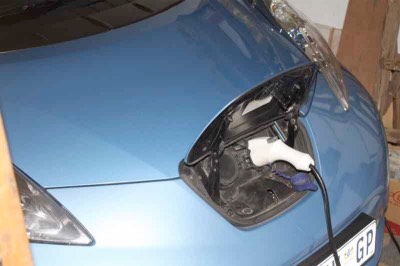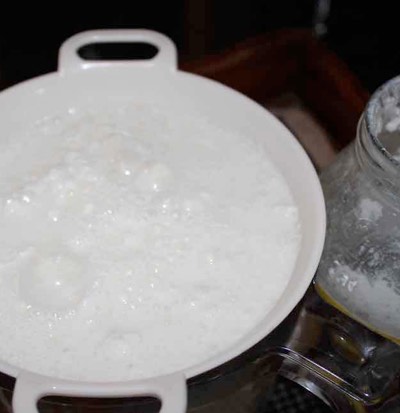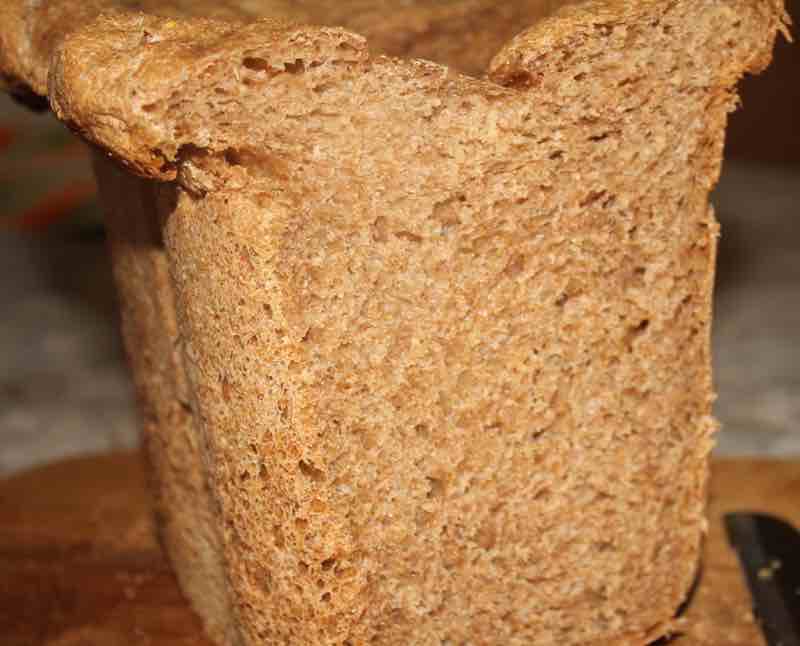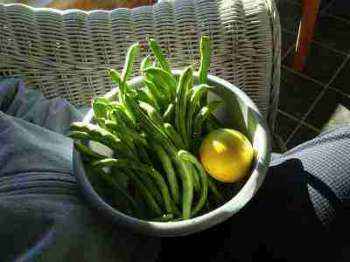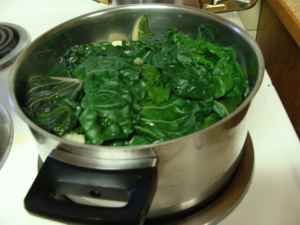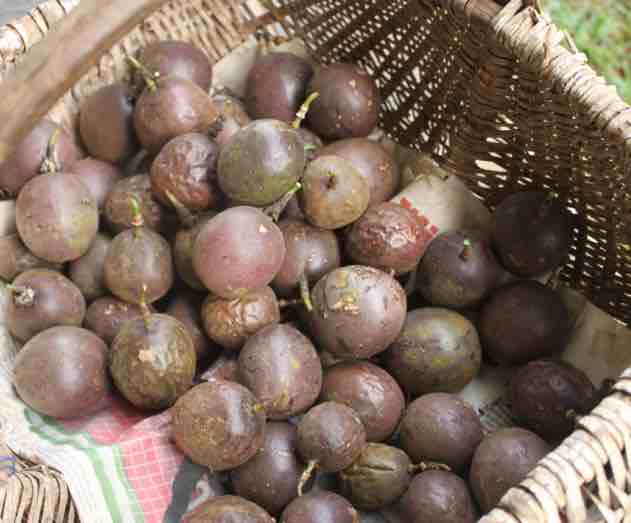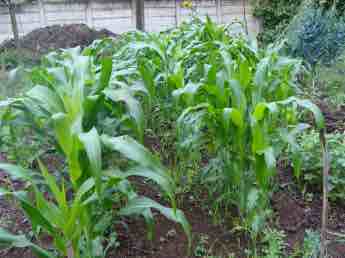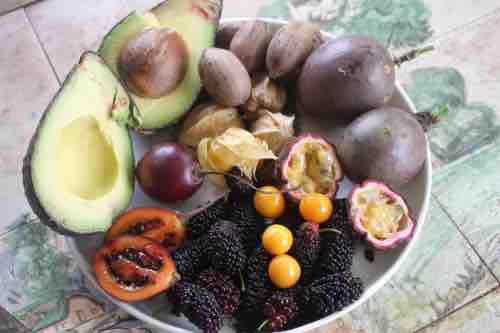| Back to Back Issues Page |
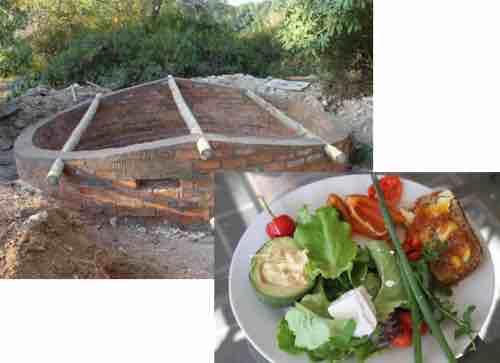 |
|
The impact of friendly bacteria in the tum on the prevention of cancer November 03, 2023 |
DearThe impact of friendly bacteria in the tum on the prevention of cancerThe impact of friendly bacteria in the tum on the prevention of cancer is proving to be a goldmine for researchers. One in six people worldwide die from a malignant tumour; an extremely miserable and often painful end to a life. One that will clean out your bank account with nothing left for your heirs. We looked at this in some detail in our last newsletter; is there a hole in the bucket, dear Liza? In South Africa it is one in four; what's happening in the colon is pivotal to both prevention and treatment of this awful disease. Concern yourself with prevention; it always was and remains a whole lot better than an elusive and very costly cure. That means amongst many other factors, a good long hard look at Glyphosate; the world's most commonly used herbicide. This site is about your wellness and that of Mother Earth. We call it a Cyan Zone; a combination of blue and green issues.
Green Zone issues of course concern caring for the place we humans call home; Mother Earth.
Folk living in the five Blue Zones have found the elixir for a long and zestful life; we can learn from them.
So Cyan Zone issues concern caring for both ourselves, our families and the planet.
This is our cyan-coloured electric car; it has no engine. The battery is charged from solar power. There are zero carbon emissions.
The impact of friendly bacteria in the tum on the prevention of cancerMany of us have a misguided notion that bacteria, viruses and yeast cells are deadly and must be destroyed immediately. Nothing could be further from the truth; our intestines are inhabited by a vast array of friendly microbes. There are far fewer pathogens.These microbes have a profound impact on our wellness; in the main for the better. They are involved in our immunity to disease, how our bodies will react when exposed to a carcinogen and they produce signalling messages for the brain carried via the vagus nerve. Bacteria inside tumoursHowever because of our lifestyle, the food we eat and overuse of antibiotics that annihilate friend and foe alike, most people have a depleted "microbiome" as it is known.It is depleted in both number and diversity; that gives the pathogens a foothold. In fact scientists are now finding these nasty microbes actually residing within tumours, resisting both your own innate immunity and any therapy you are undergoing. Researchers studying how patients suffering from cancer respond to chemotherapy were astounded to discover that those with a diverse microbiome were far more likely to survive. So notice these two factors; both the total number of microbes and their diversity are important. That means flooding the gut with a supplement which contains perhaps half a dozen, or fewer different bacteria is not helpful; by sheer weight of numbers that will squeeze out many other equally or more friendly bugs. As always this takes us back to Hippocrates, the Father of Western healthcare; let your food be your medicine. There are many natural probiotics that support the gut; but not many of us know about them. When did you last enjoy a helping of unpasteurised sauerkraut or a kefir smoothie? Those poor white miceScientists implanted tumours in a group of white mice. Some responded to chemotherapy but others did not.They implanted more tumours in a second group of mice. If they took faecal material from those that responded well to treatment and implanted it into those in the second group, they too recovered from the cancer. But if they took the faeces (containing microbes from their intestines) from the poor responders and implanted it into the second group, then they died. If we have a healthy gut with a vast, diverse number of microbes we are far less likely to get cancer in the first place; and will be more likely to respond to treatment should we need it.
"What we found was quite astounding. Namely, if patients had a particularly diverse microbiome, they were more likely to respond to treatment." - Jennifer Wargo, MD, oncologist at Anderson Cancer Centre AntibioticsThere have been a lot of papers showing that broad spectrum antibiotics upset the harmony of the microbes in the gut; and that they, given just before treatment will negatively affect the outcome of immuno-oncology medication.There are sound reasons why your doctors may not be willing to dish out antibiotics every time you catch a cold or get the flu. Don't be angry; respect them. How much fibre do you consume daily?Medical scientists have found that many of the microbes associated with a good outcome to cancer treatment are "fibre fermenters."And that those eating at least 20 grams of fibre every day were five times more likely to respond well to cancer treatment; and their survival was prolonged. They are now giving cancer patients 50 grams of fibre; that's a lot. Or conversely to put it differently, those consuming little fibre are less likely to respond well to treatment. Whole grains like stone-ground grits, fruit and vegetables are rich in fibre; and legumes too.
Overall inflammationIt is well known that cancer treatment is toxic. What the scientists have found is that an unhappy tum is strongly associated with generalised inflammation in the body and an ugly response to chemotherapy.As always scientists are looking for a single microbe, a magic bullet that will bring about a good response to chemotherapy but they have had no success. Far better is a diverse colony of friendly bacteria, viruses and yeast cells in the gut. But they are finding that some microbes do stimulate the lymphoid tissue to improve the response to cancer treatment better than others. In particular Fecalibacterium, Clostridiales, and Ruminococcaceae are being intensively studied. And worryingly that two commercial probiotics were actually associated with a worse outcome; perhaps the wrong bacteria but more likely that they reduced the diversity of the bugs in the gut.
There are many probiotics that you can brew in the kitchen but we have found that kefir is the easiest; it's like a very strong yoghurt but with over thirty different taxa of microbes. Could you make just five minutes twice a week to greatly reduce the odds of getting cancer? There are in any case many other benefits from fermenting your own probiotic. If you want to know whether these are simply the ramblings of a dangerous fanatic, then read what the oncologists are saying.
How Does the Gut Microbiome Impact Response to Cancer Therapy?
Take-homeFirstly it needs to be accepted that immuno-cancer treatment is in its infancy. There is so much scientists still don't know.But even more important in the context of prevention is that a diverse and well-populated colon is vital for our overall health; and especially determining whether we will get cancer or not. And thirdly that the friendly bacteria that protect us against disease are fibre-fermenters. Less than five percent of those eating typical grocery store food are getting the recommended daily allowance. Is it any wonder that cancer and other chronic degenerative diseases like diabetes are ripping through our society? More to the point the recommended dietary fibre intake is probably about to be increased from 30 to 40 or even more grams per day. Then only the food snobs will be getting the RDA.
Where to startOur own response, and that of those living in the Blue Zones where healthy, zestful old age is the norm has been to start growing our own vegetables. We save a lot of money, they taste far better and they are free of toxic chemicals.It has the other benefit of helping us avoid a nasty herbicide called Roundup; it too kills the bugs in the alimentary canal. Many on reading this will be throwing their hands up in disgust; they work so hard that there is little time left over for gardening, cooking nourishing food and fermenting their own probiotics. But wait a bit. You do have I suspect the time to watch the ball game over the weekend; and several movies. Could you make an hour once a week to start planting and nurturing some spinach, green beans and radishes for example? The next step is to start building a compost heap in a corner of the yard. That would save you having to bag the grass cuttings and other garden refuse; and carting them off to the dump. More radical people with small yards are starting to dig out the lawns and planting vegetables; less grass to mow too.
Plant a lemon treeStart to think about planting some fruit trees; a lemon would be my first choice and an avocado if you live in a mild climate.Citrus is also rich in the only known natural phytonutrient proven to prevent or at least delay the onset of dementia.
Fibre-rich foodsWe need to face squarely that fibre-rich foods are not popular; that's why only 5% of folk are consuming the recommended daily amount. They do not slide deliciously down the throat like a slice of cheesecake and they do require a lot of chewing. Meals take longer and we feel we cannot afford the time."Just pass me the cornflakes please; then I get breakfast over with in just two minutes."
In all five Blue Zones the people eat in the main sourdough bread.
Fresh green legumes like these beans are rich in fibre; and easy to grow. Dark-green leafy greens too are rich in fibre.
Fruit too is an excellent source of fibre; apples, berries or even these granadillas.
Time"Time is money," we argue. But have we factored in the vast number of weeks and months of poor health when we don't even have a few extra minutes to chew our fibrous food, an hour a week to grow vegetables or a couple weeks to take a well-earned holiday?Do only other people get cancer?
"Better three hours too soon than a minute late." – William Shakespeare. ChangeChange does not come easily to any of us. But it is better to amend our ways by our own choice than to have an unpleasant and even life-threatening condition with its inherent revisions foisted upon us.As Christians we believe that our bodies are the temples where Almighty God dwells; so we gladly choose this new way of living simply to honour the Holy Spirit within.
GlyphosateAnd now for something altogether more difficult as you contemplate the influence friendly bacteria have on the prevention and treatment of cancer.Glyphosate also known as Roundup is the world's most commonly used herbicide. It has enabled farmers to stop weeding their crops; time is money. Residues are regularly found in our water and food; and even in honey harvested in farming areas. The negative neurological effects have so disturbed bees that they are unable to find their way home; a sort of Alzheimer's that has been fingered in Colony Collapse Disease. You may have read for example of "Roundup Ready" corn seed. It is genetically modified in such a way that the weedicide won't harm the plant. But this "advance" in agriculture has come at a terrible price. Foods grown using Roundup as a weedicide also have profoundly negative effects on the friendly bugs in the gut. And that makes you vulnerable to getting cancer, particularly of the
blood; leukaemias and lymphomas.
Glyphosate is everywhere; it is very difficult to escape. So preoccupied are we at Our Green Home on the impact of the friendly bacteria in the tum on the prevention of cancer that we have gladly rung in these changes. We grow as much of our food as we possibly can.
The joy of it all is that consultations with our doctors are in the main for an annual checkup, excision of a suspicious sunspot and in my case neglect of having my ears lavaged annually. White males are particularly prone to a build up of wax. In our mid-seventies neither the good wife nor I take any medication whatsoever. We have so much more time; money and energy too. Create your own Cyan ZoneCare for the planet in whatever way you can. Look after yourself and the family in every possible manner; not only other people get cancer.It will mean a total overhaul of every aspect of your lifestyle; it has been the most rewarding facet of my whole being. We look upon caring for our bodies as a spiritual duty, on a par with reading of the scriptures and prayer. This human frame is the dwelling place of Almighty God; it behooves us to look after it.
To sum upHealthy old age is attainable for most of us. The chances are made up roughly by 20% from our genes that we have little control over though they too are shaped by what we eat; but 80pc by lifestyle.Till next month, Bernie
Create a cyan zone at your homeClick here to return to the home page and subscribe to this newsletter, if you have not already done so. Care for the world, look after your family.It is simple to unsubscribe if you later find these newsletters boring or irrelevant. Don't spam, but please forward this newsletter to a few selected friends who you think might be interested in sitting under the trees they once planted, sipping tea and watching the great-grandchildren growing up; and still be able to take long walks.
x There's a hole in the bucket x Everyone is talking about weight loss drugs x Pull the sweet tooth x If you suffer from heartburn plant a susu x Refined maize meal and stunting x Should agriculture and industry get priority for electricity and water? x Nature is calling x Mill your own flour x Bake your own sourdough bread x Alternative types of water storage x Wear your clothes out x Comfort foods x Create a bee-friendly environment x Go to bed slightly hungry x Keep bees x Blue zone folk are religious x Reduce plastic waste x Family is important x What can go in compost? x Grow broad beans for longevity x Harvest and store sunshine x Blue zone exercise x Harvest and store your rainwater x Create a cyan zone at your home |
| Back to Back Issues Page |

